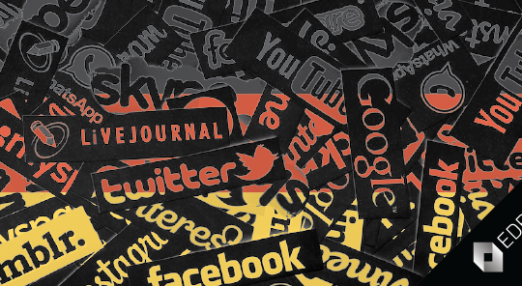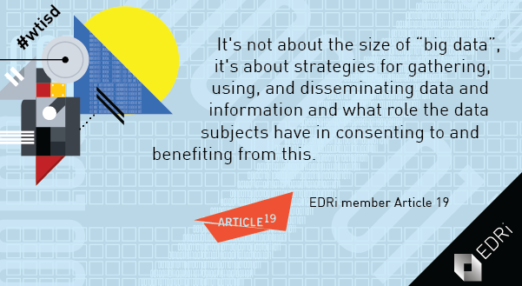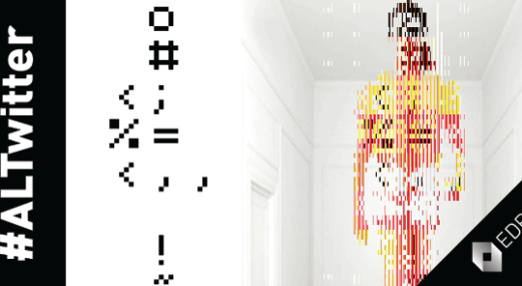Our work
EDRi is the biggest European network defending rights and freedoms online. We work to to challenge private and state actors who abuse their power to control or manipulate the public. We do so by advocating for robust and enforced laws, informing and mobilising people, promoting a healthy and accountable technology market, and building a movement of organisations and individuals committed to digital rights and freedoms in a connected world.
Filter resources
-

Irish police phone tapping undermines citizens’ rights
An Garda Síochána, the Irish police force has fallen, yet again, under public scrutiny for privacy violations of innocent citizens. An investigation by the Irish Independent newspaper has found that members of the public had their phones tapped without proper justification. The widespread phone tapping was revealed after a senior officer tried to highlight his […]
Read more
-

EU discusses future of data retention: “Indiscriminate retention no longer possible”
This is a translation of an article originally written by Anna Biselli on netzpolitik.org. Translation: Anna Biselli, Kirsten Fiedler. The German government is maintaining its unswerving commitment to make communications data retention obligatory from July 2017 onwards. Meanwhile, different EU level groups and institutions are discussing if or how data retention measures are compatible with […]
Read more
-

ENDitorial: Consumer protection MEPs launch attack on consumers
Documents leaked by Julia Reda, a Member the European Parliament (MEP) show that parliamentarians on the Committee on the Internal Market and Consumer Protection (IMCO), whose job it is to protect consumers and improve legal consistency in the EU, are planning an assault on citizens’ fundamental rights, legal coherence and even the ultimate authority of […]
Read more
-

The EU must take action to protect whistleblowers
The right of citizens to report wrongdoing is a natural extension of the right of freedom of expression, and is linked to the principles of transparency and integrity. – Transparency International Chelsea Manning and Edward Snowden are some of the most famous whistleblowers, thanks to their huge impact on the protection of human rights. However, there […]
Read more
-

Romanian Parliament: EU Copyright reform does more harm than good
While the European Parliament is in the middle of its discussions about the European Commission’s proposal for a Directive on Copyright in the Digital Single Market, similar discussions are taking place in a number of Member State parliaments. The results of these conversations will influence the position that Member States take in the discussions in […]
Read more
-

EU action needed: German NetzDG draft threatens freedom of expression
On 22 May 2017 six civil society and industry associations sent an open letter to eight EU Commissioners asking to take action against the German bill on “Enforcement on Social Networks”, the “NetzDG”.
Read more
-

Looking back on our 2016 victories
Technological advancements in the digital world create new opportunities but also new challenges for human rights. Especially in the past year, the fear of extremism on the one side and extreme measures on the other resulted in the desire for swift political action and made defending citizen’s rights and freedoms online a difficult task. In […]
Read more
-

UK Digital Economy Act: Millions of websites could be blocked
The Digital Economy Act has become law in the United Kingdom. This wide-ranging law has several areas of concern for digital rights, and could seriously affect privacy and freedom of expression of internet users. One of the main concerns is that it will compel legal pornographic websites to verify the age of their users. The British […]
Read more
-

Dutch ban on zero-rating struck down – major blow to net neutrality
20 April 2017 was a bad day for net neutrality in the Netherlands, and possibly also in the rest of Europe. The court of Rotterdam struck down the general ban on price discrimination, including zero-rating, as enacted in the Dutch Telecommunications Act. The court held that the categorical ban on price discrimination is “evidently” in […]
Read more
-

BBA Germany 2017: Espionage, threats, tracking, provoking cyber wars
The annual German Big Brother Awards were bestowed by EDRi member Digitalcourage on 5 May 2017 in Bielefeld, Germany. The event drew much media attention, as one of the awardees threatened the organiser with legal action. The awardees are informed of their awards a few days in advance and invited to respond or appear at the […]
Read more
-

Big Data for Big Impact – but not only a positive one
Technology has changed and keeps dramatically changing our everyday life by transforming the human species to advanced networked societies. To celebrate this digital revolution, 17 May is dedicated to the “World Telecommunication and Information Society Day” (WTISD-17). The theme for this year’s celebration is “Big Data for Big Impact”. Not so surprisingly, the buzzword “big […]
Read more
-

ALTwitter – profiling with metadata
When we are sharing links, events or ideas through social media, we leave behind a trace of metadata: when and how often, which days of the week, in which language, using which hashtag, linking to which users or websites, and so on. Those details might not say much when we look at each piece of […]
Read more
